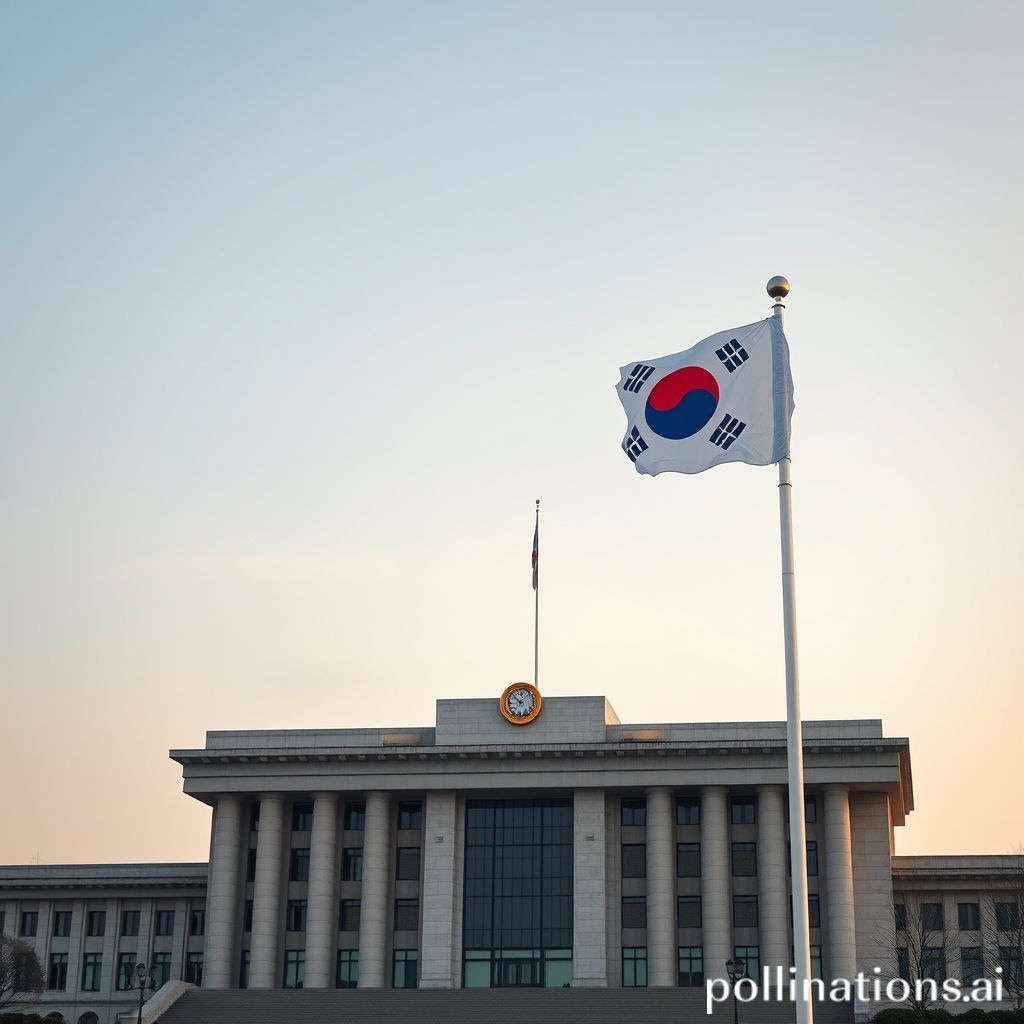
South Korea's ruling party is facing unprecedented political resistance as the opposition intensifies its criticism of the Lee Jae-myung administration's comprehensive tax reform plan announced on August 12, 2025. The Democratic Party of Korea has warned of legislative boycotts and mass protests if the government proceeds with proposed increases to corporate and wealth taxes. This political standoff threatens to paralyze the National Assembly and could significantly impact South Korea's economic policy direction for the remainder of President Lee's term.
The main opposition People Power Party has declared "total war" against the proposed tax changes, which include raising the corporate tax rate from 25% to 28% for large corporations and implementing a new wealth tax on individuals with assets exceeding 1 billion won (approximately (,000 USD). Opposition leader Han Dong-hoon criticized the plan as "socialist policies that will destroy Korea's economy," echoing concerns from the business community that have been mounting since the proposal's initial leak in early August.
The intensity of opposition reflects deeper ideological divisions in Korean politics about economic inequality and business regulation that have persisted since the country's democratic transition in the 1980s. Unlike the more moderate approach of previous Democratic administrations, President Lee's proposals represent a significant shift toward progressive taxation policies similar to those implemented in European social democratic countries like Sweden and Denmark.
Korea's largest business federation, the Korea Chamber of Commerce and Industry, has warned that the tax increases could drive companies to relocate overseas, particularly to countries like Singapore and Vietnam that offer more competitive corporate tax rates. Samsung Electronics and LG Group have already indicated they may accelerate planned expansions in Southeast Asia rather than investing in domestic facilities, a threat that carries significant weight given these conglomerates' outsized role in Korea's export-driven economy.
For American observers, this situation parallels debates in the US Congress over corporate tax rates, though Korea's proposed rates would still be lower than the current US federal rate of 35%. The key difference lies in Korea's highly export-dependent economy, where tax policy changes can more dramatically impact international competitiveness. Korea's exports account for approximately 40% of GDP, compared to about 12% for the United States, making Korean companies particularly sensitive to cost-structure changes.
The proposed wealth tax has generated equally fierce opposition from Korea's affluent classes, many of whom have threatened to relocate assets overseas if the measure is implemented. Real estate industry representatives argue that the tax could trigger a significant outflow of investment capital at a time when Korea's property market is already experiencing volatility. The measure would affect an estimated 50,000 households nationwide, but critics argue that wealthy individuals will simply restructure their assets to avoid the tax, potentially reducing its revenue-generating effectiveness.
Political analysts suggest that President Lee's aggressive tax reform agenda reflects his administration's commitment to addressing Korea's growing wealth inequality, which has become a defining political issue following decades of rapid economic growth that disproportionately benefited the upper classes. Korea's Gini coefficient, a measure of income inequality, has steadily increased from 0.31 in 2000 to 0.35 in 2024, approaching levels that typically trigger social unrest in developed democracies.
The timing of the tax reform proposal is particularly significant, coming just eighteen months before Korea's next presidential election in December 2026. Opposition parties view the measure as an attempt by Lee's administration to mobilize progressive voters while putting conservative opponents in the politically difficult position of appearing to defend wealthy taxpayers. This strategic calculation mirrors similar political dynamics in other democracies where progressive taxation has become a wedge issue.
International economic organizations have offered mixed assessments of Korea's tax reform proposal. The International Monetary Fund has generally supported efforts to reduce inequality through progressive taxation, while the Organization for Economic Cooperation and Development has expressed concern about potential negative impacts on Korea's competitiveness in attracting foreign direct investment.
The business community's response has been swift and coordinated, with major trade associations launching public relations campaigns highlighting the potential economic risks of the proposed changes. These efforts include economic impact studies predicting significant job losses and reduced investment if the measures are implemented, though independent economists have questioned some of these projections as potentially exaggerated.
The political crisis highlights the ongoing tension between South Korea's rapid economic development model, which prioritized growth over distribution, and growing demands for wealth redistribution that reflect the country's maturation as a developed democracy. As Korea transitions from a developing to fully developed economy, these debates about tax policy reflect broader questions about sustainable economic growth and social equity that resonate with similar discussions in other advanced economies worldwide.
The ultimate resolution of this political standoff will likely depend on President Lee's ability to maintain unity within his own party while potentially negotiating compromise measures that address opposition concerns without abandoning the core progressive principles that define his administration's domestic policy agenda. The stakes extend beyond Korea's borders, as the outcome could influence similar policy debates throughout Asia's developed economies.
Original Article (Korean): Read in Korean


0 Comments